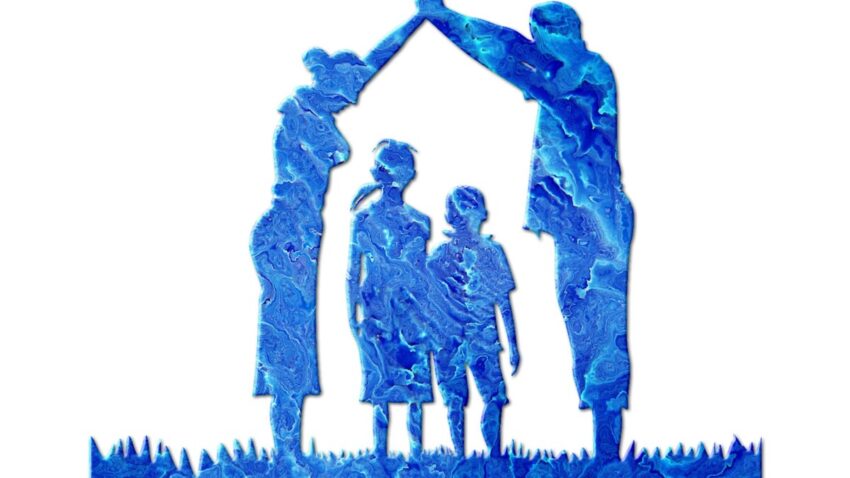by June Carbone and Martha Albertson Fineman

“Sociologists talk about the role of family law in terms of its promotion of the “institutionalization” of the family. Institutionalization involves the creation of normative expectations, the coordination of behavior, and the regularization of roles associated with family formation, conduct, and dissolution. Carl Schneider (1992) described this institutionalization as accomplished through the “channeling function” of family law. Law’s channeling in the family context is less coercive than it is in, for example, criminal law, but more directive than the reliance on voluntary assumption of obligations found in areas such as contract law.
Two long-term developments currently are reshaping families and transforming family law: greater autonomy for women and growing economic inequality in Western societies. These changes have eroded the formerly near-universal acceptance of marriage as the only appropriate site for childbearing. Growing inequality has created a menu of options in family formation that are importantly shaped by class. Today, marriages tend to occur much later in life, if at all. Some commentators suggest marriage has become a “status symbol,” attainable only by those who have achieved both maturity and financial stability.
Sociologist Andrew Cherlin (2004) has also noted a move away from the social norms that once guided young people into marriage and kept them there. These norms imposed gendered roles that marked entry into adulthood across society (and which also fostered the dependence of wives on wage-earning husbands).
Modern relationships are seen as part of a quest for individual expression and fulfillment rather than societally mandated institutional obligations. Cherlin describes related societal changes, such as the growth in non-marital cohabitation and same-sex unions, as representing the “deinstitutionalization” of American marriage. Such normative “innovations” in coupling have also been viewed as undermining the very institution of family.”
….
II. The “Deinstitutionalizing” of the Traditional Family
The deinstitutionalization of the family occurred in response to three “revolutions” that took place mid-twentieth century: the gender equality, sexual liberation, and no-fault divorce movements. These forces redefined the relationship between men and women, remade expectations for work and family, and decoupled marriage and reproduction. (Jacob)
During the late sixties and early seventies, states began to lower the age of political majority from twenty-one to eighteen. This culminated in a constitutional amendment that lowered the age of majority on a national level, and eventually a Supreme Court ruling that extended the privileges of adulthood to teens. This change in the legal age had the inadvertent effect of making the newly available birth control pill legal on college campuses without parental approval. Economists Goldin and Katz indicate that the greater availability of the pill correlated with a significant delay in the age of marriage, women staying in school longer, and a dramatic increase in female enrollment in graduate and professional schools. (Goldin and Katz). The legalization of abortion in 1973 saw adoptions, which peaked in 1970, cut in half by 1975 as teen births steadily declined.
These changes had a profound effect on family formation. First, education increased women’s independence – even the mothers of small children could conceivably support themselves. Second, as women directed more energy to market labor, men were expected to contribute more to childrearing. Third, women gained greater control over their own sexuality, as much of the stigma associated with nonmarital sexuality was removed and pregnancy prevention became accessible. The transformation of women’s roles that came with the waning of the industrial economy prompted a revolution in family law. (Jacob)
The divorce law of the industrial era permitted marital dissolution only if one party (and one party alone) was at “fault.” Flouting well-defined marital obligations justified freeing the other spouse from the bonds of what was seen as an already defunct union. If both parties were at fault, however, neither could obtain a divorce. Perhaps in light of the growing independence of women, demand for divorce rose. Spouses colluded and ‘divorce factories’ rose up to help them. (Jacob) It was said that adultery was proved with certainty only where it hadn’t occurred, as where one of the spouses might agree to be photographed with a paid model outside a hotel to “prove” that divorce grounds existed. These practices discredited the process and increased the demand for divorce reform over the course of the twentieth century. When the dam obstructing reform efforts gave way, divorce reform swept the country with every state liberalizing the grounds for divorce between 1969 and 1985. The incidence of divorce grew dramatically, and single parents became a common occurrence.
As the stigma associated with non-marital sexuality declined, so did the legal distinctions between marital and non-marital children. In England, “illegitimate” children were said to be filius nullius, literally, the child of no-one, unable to inherit from their mother or father. In 1972, the United States Supreme Court struck down state laws distinguishing between marital and non-marital children with respect to inheritance. (Levy v. Louisiana) In the same year, it also held unconstitutional the refusal to recognize as a legal parent an unmarried, biological father who had lived with the mother and children. (Stanley v. Illinois) In the years that followed, family law eliminated most of the remaining distinctions between marital and nonmarital children.
Finally, custody law shifted from a model that presumed that children of tender years would be better off with their mothers, to one that assumes that children benefit from the continuing involvement of both parents. This legal shift dismantled the gendered roles of “mother” and “father” and replaced them with a more neutral parenting model.
Fineman, Martha Albertson and Carbone, June, Family Law in the United States (May 15, 2014). International Encyclopedia of the Social and Behavioral Sciences (2nd ed. Forthcoming), Minnesota Legal Studies Research Paper No. 14-25, Available at SSRN: https://ssrn.com/abstract=2437453 or http://dx.doi.org/10.2139/ssrn.2437453

